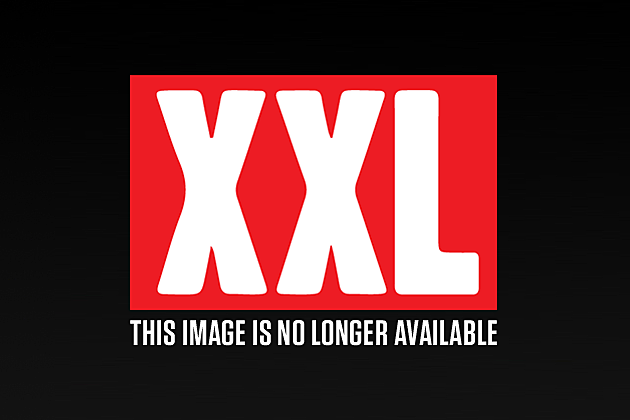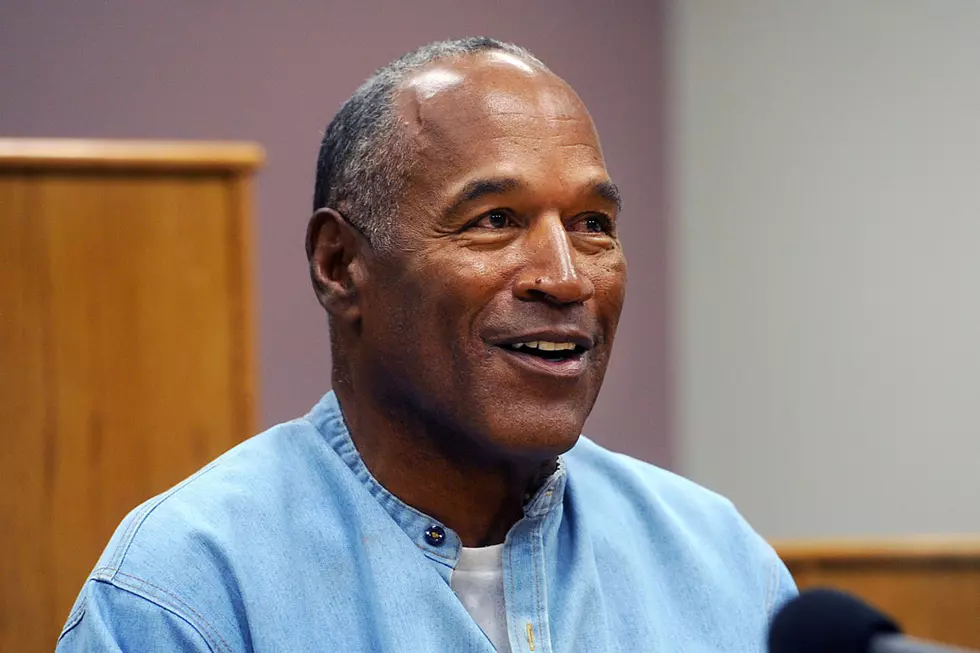
Tupac Month: Tony Danza Talks About His Relationship with ‘Pac
During Tupac Shakur’s very brief, yet immensely impactful life, he accumulated an innumerable amount of supporters, as well as an interesting list of celebrity friends; everyone from Madonna and Mickey Rourke to Jasmine Guy and Jada Pinkett Smith had some sort of relationship with the beloved rap legend.
But arguably the most shocking friendship he acquired was with actor Tony Danza. Known for his roles on hit TV shows like Taxi and Who’s the Boss, Danza befriended ’Pac in 1995 via mail, when ’Pac was serving a one-and-a-half to four-year sentence for a sexual assault conviction (of which he only served 11 months). The former boxer-turned-thespian surprisingly reached out to Shakur in a moment of need and an unexpected relationship was formed.
TUPAC TALKS ABOUT TONY DANZA - FRENCH KICK... by frenchkick
XXL recently chopped it up with Tony to find out what exactly they spoke about while pen pals and why he felt compelled to contact ’Pac in the first place. As the theme to Who’s the Boss goes, “There’s more to life than what you’re livin’.” —Jesse Gissen
XXLMag.com: I don’t know if you’re aware but we’re approaching the 15-year anniversary of Tupac’s death this month.
Tony Danza: That’s unbelievable.
It really is. You corresponded with him while he was in jail in 1995. How did that begin? What motivated you to write a letter to ’Pac?
First of all, I’m a fan. I’m just a fan. I was a fan of his—and I’ll be honest with you, I’m not the biggest fan of gangster rap. But I was a fan of his, and the phenomenon really interested me, you know. And then, when he got shot five times, and then they had the sexual attack on that make-up lady, or something, I don’t remember what the deal was. He goes to jail. So I’m in my car one day, hitting the button and I hit “Dear Mama.” I hear his song, and I just thought to my self, "jeez, it’s really interesting that this guy that wrote this song is sitting in jail, with five bullet holes, with a big sign that says 'Thug Life' tattooed on his stomach, and yet here he is writing this kind of music, and doing this kind of work—pretty good actor too." So, I just like to write people, because you’re somebody, they write back. It’s interesting; I think people write back for the most part anyway ’cause, getting a correspondence is so rare.
What exactly did the letter say?
So I wrote a note to him—a letter to him, and I said “Hey Tupac,” and it was so weird, I’ll never forget, I was trying to think, "what do you write? Do you write Tupac? How do you do it? 'Dear Tupac?' I don’t know—'dear [the number 2-Pac]?' I don’t know." So anyway, I just wrote and said “Listen, I love that song, I like a lot of your work,” I said, “considering the situation you find yourself in, and considering the juxtaposition of the song [“Dear Mama’] that reaches people like that, maybe there’s another way. I understand that the business you’re in is not—you can’t be a goody-two shoes in this business, but maybe there’s a way to inspire youth instead of—you know. Maybe there’s a way that you can use this talent of yours to inspire our youth, because they need somebody.”
FOR MORE TONY DANZA, GO TO PAGE 2
So what did he say in response?
He writes me back, but he writes me back a letter that sort of doesn’t address anything I’ve said. It’s like, it’s almost as if he says, “thanks for understanding my predicament.”
Ha! That's pretty funny. What'd you do at that point?
I wrote another letter, I don’t know what I was trying to say, maybe it was, "I think that with your talent comes responsibility, I mean there’s a lot of people who look up to you, and you’re not, maybe not living up to the potential that you possibly could have." And then he wrote me back again. It was so funny to go to the mailbox and get a letter.
I bet. What did his letter to you say this time?
So this time he says, “I get it, I get it.” And then, from then on, we wrote a couple of letters back and forth and that was the end of it.
That was the end of it? Did you guys ever see each other after in person?
Well, he gets out of jail, and I think I went to some premiere with my family. And a guy came over, a big giant guy came over and said, “Tupac wants to see you.” I went over, said “Hello,” it wasn’t like we—you know, we weren't drinking gin and juice together, but it was just this momentary thing where I reached out and he reached back.
That must've been a special moment. What was it like when you encountered him? What kind of conversation did you have when you guys actually met face-to-face?
It was just, you know, “Hey I really appreciate you writing me and I got what you were saying,” and I told him how much—you know it was like a million people around, it wasn’t like you could sit and talk for a minute. I don’t wanna make more of it than it was. Strictly like, I wrote the guy, he wrote me back, and then we had this one meeting where I saw him, talked to him for a second, just thanks. It wasn’t, you know—I wish I could give you like wow, then we rode together and because of my letter he didn’t die, you know what I mean? But that’s not what happened. And I’ll be honest with you, when I saw [Tupac] Resurrection, and I saw him bring it up, I was shocked.
That’s what I was gonna ask you about, because he made a big point to be like, "when Tony reached out to me, this made an impact on me." He had Madonna and all these other people reaching out to him, but that was the one thing—you reaching out really was the one thing that woke him up a little, you know?
Interesting. That’s interesting, but it shows you, you know, human contact. I was trying to do a little tough love to Tupac, which is kinda strange, you know. The letters, it really was just a conversation about what the world is, what’s happening, and a lot about the responsibility that comes with great influence, that really was the theme.
How did you originally discover his music in the first place?
I have eclectic taste as far as music goes, and I’m interested in what people are listening to. And again, he was a good actor too. This particular guy had something else to attract me. I like the way his voice sounds, like everybody else, and what he says. And by the way, he was a—so much of all of this, you know, this stuff we watch on TV, this music we hear, our politics, it’s all a reflection of us, and he was reflecting, he was—I really, I found him profound in a lot of ways.
You saw Resurrection, so you were aware of his background in the sense of—he was conceived in jail, his mother was part of the Black Panther Party, his father was part of the Black Panther Party, he had a lot of political influence in his upbringing. I mean, his story is truly an American story.
That’s what I mean. This was not somebody who didn’t know what he was talking about, he was reflecting what he knew about, so I just found him really—like I said—there’s actually one letter where he, I can’t remember, but we got into this conversation about responsibility and influence and he felt [that it was his] responsibility [to inform others], but he had to balance that with his job, basically, what they were calling for.
More From XXL









